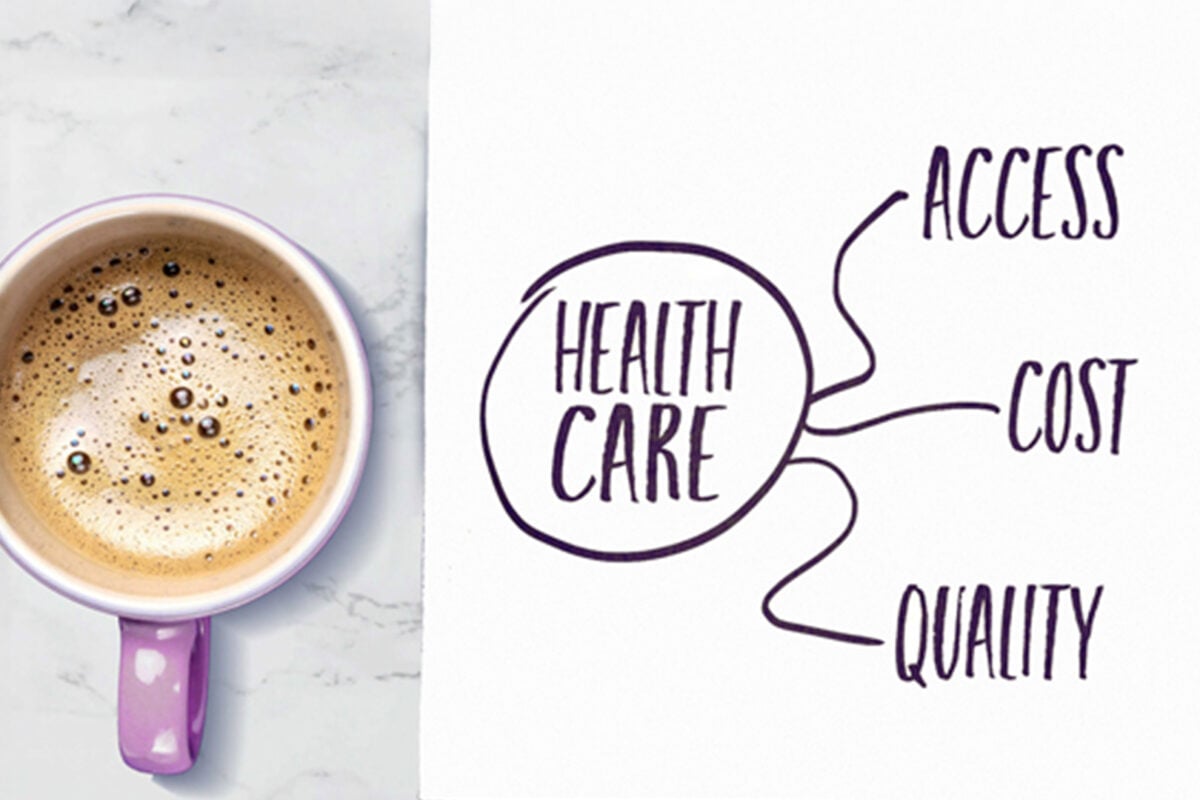Rising costs and a demand for more convenient care are driving forces behind the rapidly growing retail healthcare trend in the US.
With changing care models, cost considerations and consumer satisfaction at the forefront of consumer priorities, health systems are forced to adopt strategies that will help them compete against organizations previously thought to be unlikely competitors, like Amazon, Best Buy and CVS.
Retail clinics are evolving from limited, non-emergency care centers to include more advanced primary care, chronic disease management and even behavioral health services. Such new primary care models could grow to become a third of the market by 2030, according to a recent report by Definitive Healthcare.1
To remain competitive, health systems must embrace new and innovative engagement strategies that place the consumer at the center of their focus.
Here are five strategies that will help health systems drive engagement and build loyalty in this increasingly competitive market:
1. Meet Younger Consumers Where They Are: Their Mobile Device
The modern healthcare consumer is tech-savvy and values convenience whether that be the ability to book an appointment online or seek care through rapid, on-demand telehealth services. These consumers expect convenience at every touchpoint within their healthcare journey. To engage them effectively, health systems must ensure they are well-equipped to communicate and deliver services in a digital-first ecosystem. Utilizing tools like in-app messaging, geotargeting and beacon technologies, live chat, recall systems, reminder series’ and online scheduling are great ways to enhance engagement with Millennials and Gen Z by appealing to their need for convenience and digital-first solutions.
2. Enhance In-Office Experience: Convenience and Comfort Matter
It’s important to remember that while digital engagement is crucial in healthcare, the in-office experience still plays a significant role in consumer satisfaction. Health systems can differentiate themselves by providing an exceptional in-person visit that appeals to younger consumers. One way to do this is by offering convenient amenities such as charging stations for mobile devices, access to educational resources that empower consumers on their healthcare journey, and easy-to-use digital check-in, payment and scheduling options. These can help younger consumers feel more connected to the brand and enhance their overall experience.
Additionally, a lot can be said for updating the office décor to feel more like a relaxing, welcoming space and less like a clinical waiting room. Things like comfortable and stylish chairs, updated paint or wallpaper and soothing ambient music or sounds can go a long way toward making a consumer feel comfortable and valued during their visit.
3. Retention Strategies: Ask for reviews
When it comes to making decisions as consumers, word-of-mouth recommendations and online reviews hold a lot of weight. Recent data shows that nearly 75% of consumers rely on reviews as their first step in finding a provider.2 Today’s tech-savvy consumer searches online for reviews before making an appointment, does not hesitate to get a second opinion and is likely to share their experience online.
Asking consumers to leave reviews is a crucial step toward boosting a health system’s online reputation and attracting new consumers. That said, addressing negative feedback in a timely and constructive way is an equally important component of any retention strategy. By responding to negative feedback, health systems send the message to consumers that they are listening and committed to improving a consumer’s experience.
4. Price Transparency: Building Trust and Loyalty
As high deductible insurance plans and general healthcare inflation demand consumers to bear more of their healthcare costs, price transparency is becoming a hot priority. Health systems have an opportunity to eliminate confusion around a consumer’s understanding of healthcare costs by offering solutions like online estimators and financial counseling services to assist consumers with understanding the costs associated with their care.
While health insurance and other factors can add layers of complexity to understanding a consumer’s costs for care, providing services that help consumers navigate these complexities will go a long way in building trust and loyalty. Additionally, flexible payment options and mobile wallets are valued and necessary when engaging with Millennials and Gen Zs.
5. Promote Clinicians as Approachable Experts: Improve Reputation as a Thought Leader
One in 10 consumers turn to social media for health information3, so it makes sense for health systems to promote the expertise of their healthcare professionals on channels like Facebook, Instagram, TikTok and LinkedIn. Consumers are more likely to engage with physicians they perceive as approachable and knowledgeable and social media provides a convenient platform for health systems to showcase their healthcare professionals in a relatable and compelling way.
Quick videos and reels of healthcare professionals offering wellness tips or screening recommendations that coincide with health recognition days are just a few examples of how a health system can position its providers as knowledgeable and approachable experts. By differentiating their clinicians and emphasizing their expertise compellingly, health systems can build stronger relationships with providers, increase engagement, improve reputation and drive loyalty.
Consumer Centricity is Key to Building Loyalty and Driving Engagement
In this article, we explored a range of strategies that health systems can implement to meet the changing needs and expectations of consumers. However, it is important to note that these strategies are just the starting point. Building on these strategies to meet the rapidly evolving demands of consumers requires a relentless commitment to understanding the evolution of consumer needs over time, as well as a willingness to adapt and change to ensure the experience you deliver is competitive and desirable to consumers now and in the months and years to come.
Resources:
[2] https://www.medicaleconomics.com/view/do-online-ratings-help-patients-find-better-doctors-





